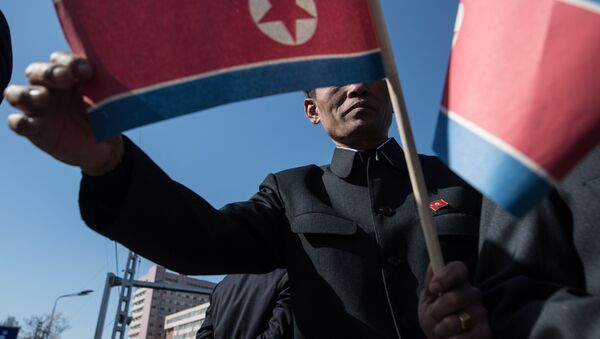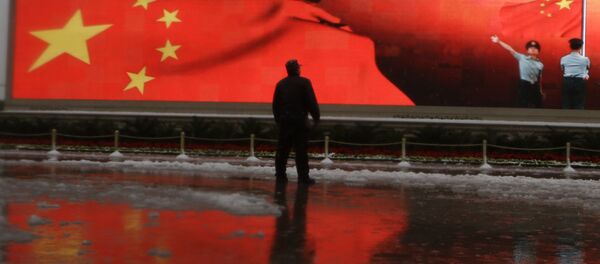By doing so, Beijing is sending a message to the world that it does not accept Pyongyang's international isolation as a way to defuse tensions on the Korean Peninsula, according to the experts.
In 2013, China announced its new strategy of economic development, called "One Belt, One Way," which aims at establishing infrastructure in Eurasia for the creation of a trade corridor that will directly supply goods from the eastern to western part of the continent on favorable terms.
China urges restraint over North Korea missile test even as Pyongyang remains defiant https://t.co/qFFc43x3MC pic.twitter.com/wOfmOp1yyb
— SCMP News (@SCMP_News) 14 мая 2017 г.
It encompasses two main directions of development: the Silk Road Economic Belt and the Maritime Silk Road.
As for the Beijing forum, it will be the first major international gathering to be attended by Pyongyang after a sharp deterioration of the situation on the Korean Peninsula and tough UN sanctions against North Korea which were slapped in response to its nuclear and missile tests.
China says all welcome at Silk Road forum after U.S. complains over North Korea https://t.co/Wt6PKnaknk pic.twitter.com/kwIf6RoAfX
— Reuters Top News (@Reuters) 13 мая 2017 г.
Speaking to Sputnik, expert Alexander Larin from the Moscow-based Institute of the Far East said that the very fact of Beijing inviting a North Korean delegation to the forum, which will be attended by representatives of more than 130 countries, reflects China's intention to help Pyongyang overcome international isolation.
"Despite bilateral differences over North Korea's nuclear program, Pyongyang perceives China as its most influential neighbor. The Chinese government, for its part, probably wants to use the Beijing forum in order to show its respect toward Pyongyang even now that North Korea remains in political isolation," Larin said.
"North Korea will, in turn, use this forum to underscore once again that it wants an agreement with the US and South Korea, but on their own terms. And it is quite possible that a kind of bargaining will take place in Beijing during these consultations, and that the solution of the North Korean problem will move forward a little bit," Larin added.
He was echoed by Alexander Vorontsov of the Institute of Oriental Studies in Moscow, who said that Pyongyang certainly appreciated Beijing's desire to help North Korea tackle international isolation.
"No doubt, this is an important event because North Korea's participation in the Beijing forum indicates Pyongyang's push for developing relations with China," he said.
"They are ready for a dialogue, and they are willing to discuss pressing bilateral and international issues," Vorontsov said referring to North Korea.
"So it is safe to say that the North Korean delegation's participation in the Beijing forum is certainly a positive and important signal. It's a show of openness and readiness to find solutions to the most difficult issues," he said.
Konstantin Asmolov, another expert of the Moscow-based Institute of the Far East, described the arrival of the North Korean delegation in Beijing as a new opportunity to help defuse tensions on the Korean Peninsula and bilateral or multilateral negotiations on the issue.
Asmolov rejected Washington and Seoul's allegations that China fully supported the US policy of isolating North Korea and those relations between Beijing and Pyongyang completely deteriorated.
"The North Korean delegation attending the Beijing forum indicates that these allegations hold no water. For Pyongyang, the forum is an opportunity to try to resume its political and economic ties with China and the rest of the world," he said.
"China has repeatedly supported the idea of a nuclear-free status of the Korean Peninsula, urging a diplomatic solution to the issue. This is something that is once again confirmed by the Chinese side's decision to invite the North Korean delegation to attend the Beijing forum," Zhigang said.
Never miss a story again — sign up to our Telegram channel and we'll keep you up to speed!





